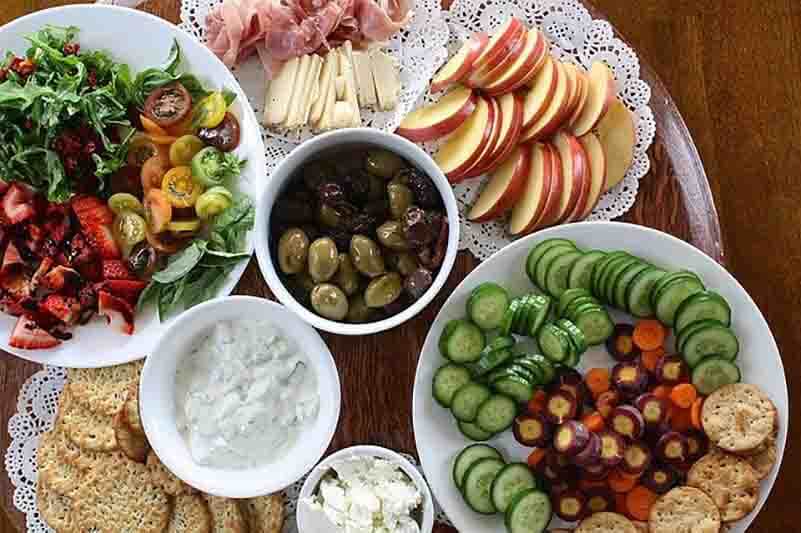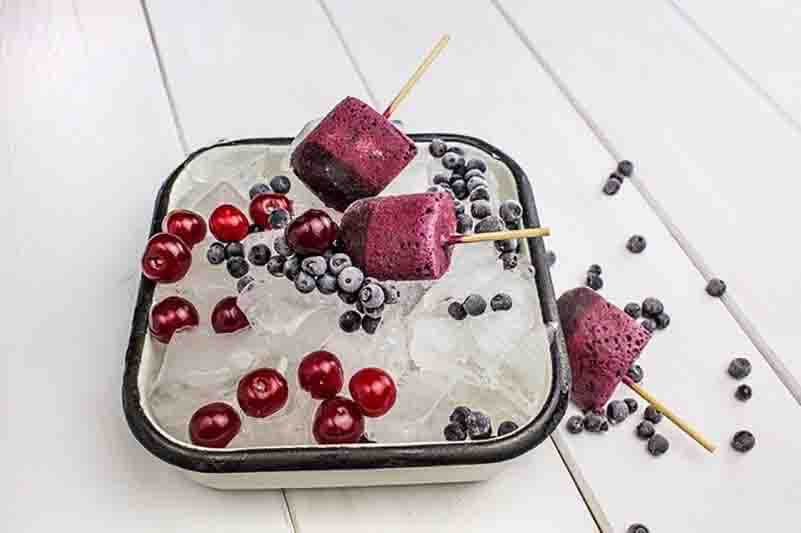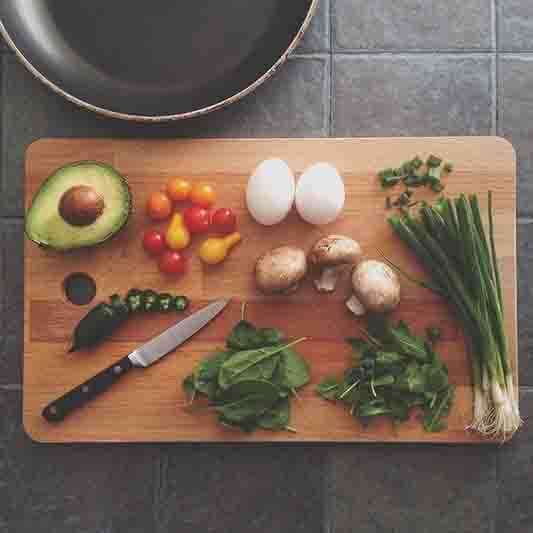
Navigating the Fog: Coping with Sleep Deprivation and Surviving the Exhaustion
Sleep deprivation is a common struggle for many in today’s fast-paced world. Whether it’s due

By Marshashari

𝘖𝘯𝘦 𝘰𝘧 𝘵𝘩𝘦 𝘣𝘪𝘨𝘨𝘦𝘴𝘵 𝘤𝘰𝘯𝘤𝘦𝘳𝘯𝘴 𝘱𝘦𝘰𝘱𝘭𝘦 𝘩𝘢𝘷𝘦 𝘸𝘩𝘦𝘯 𝘵𝘩𝘦𝘺 𝘥𝘦𝘤𝘪𝘥𝘦 𝘰𝘯 𝘢𝘯 𝘰𝘳𝘨𝘢𝘯𝘪𝘤 𝘭𝘪𝘧𝘦𝘴𝘵𝘺𝘭𝘦 𝘪𝘴 𝘩𝘰𝘸 𝘮𝘶𝘤𝘩 𝘵𝘩𝘦𝘺 𝘸𝘪𝘭𝘭 𝘩𝘢𝘷𝘦 𝘵𝘰 𝘴𝘱𝘦𝘯𝘥 𝘵𝘰 𝘴𝘶𝘴𝘵𝘢𝘪𝘯 𝘪𝘵. 𝘛𝘩𝘦 𝘪𝘥𝘦𝘢 𝘵𝘩𝘢𝘵 𝘰𝘳𝘨𝘢𝘯𝘪𝘤 𝘧𝘰𝘰𝘥𝘴 𝘢𝘳𝘦 𝘦𝘹𝘱𝘦𝘯𝘴𝘪𝘷𝘦 𝘪𝘴 𝘯𝘰𝘵 𝘦𝘯𝘵𝘪𝘳𝘦𝘭𝘺 𝘸𝘳𝘰𝘯𝘨; 𝘰𝘧𝘵𝘦𝘯, 𝘺𝘰𝘶’𝘳𝘦 𝘨𝘰𝘪𝘯𝘨 𝘵𝘰 𝘧𝘪𝘯𝘥 𝘰𝘳𝘨𝘢𝘯𝘪𝘤 𝘧𝘰𝘰𝘥𝘴 𝘢𝘵 𝘢 𝘩𝘪𝘨𝘩𝘦𝘳 𝘳𝘢𝘵𝘦 𝘵𝘩𝘢𝘯 𝘶𝘴𝘶𝘢𝘭.
𝘛𝘩𝘦𝘳𝘦𝘧𝘰𝘳𝘦, 𝘦𝘢𝘵𝘪𝘯𝘨 𝘩𝘦𝘢𝘭𝘵𝘩𝘺 𝘰𝘯 𝘢 𝘵𝘪𝘨𝘩𝘵 𝘣𝘶𝘥𝘨𝘦𝘵 𝘤𝘢𝘯 𝘴𝘰𝘮𝘦𝘵𝘪𝘮𝘦𝘴 𝘧𝘦𝘦𝘭 𝘭𝘪𝘬𝘦 𝘢 𝘱𝘪𝘱𝘦 𝘥𝘳𝘦𝘢𝘮. 𝘏𝘰𝘸𝘦𝘷𝘦𝘳, 𝘮𝘶𝘤𝘩 𝘭𝘪𝘬𝘦 𝘢𝘯𝘺𝘵𝘩𝘪𝘯𝘨 𝘦𝘭𝘴𝘦, 𝘵𝘩𝘦𝘳𝘦 𝘢𝘳𝘦 𝘸𝘢𝘺𝘴 𝘺𝘰𝘶 𝘤𝘢𝘯 𝘧𝘪𝘨𝘶𝘳𝘦 𝘰𝘶𝘵 𝘢 𝘣𝘶𝘥𝘨𝘦𝘵 𝘵𝘩𝘢𝘵 𝘸𝘰𝘳𝘬𝘴 𝘸𝘪𝘵𝘩𝘪𝘯 𝘵𝘩𝘦 𝘢𝘮𝘰𝘶𝘯𝘵 𝘺𝘰𝘶’𝘳𝘦 𝘢𝘣𝘭𝘦 𝘵𝘰 𝘴𝘱𝘦𝘯𝘥.
𝘜𝘴𝘦 𝘵𝘩𝘪𝘴 𝘢𝘳𝘵𝘪𝘤𝘭𝘦 𝘢𝘴 𝘢 𝘲𝘶𝘪𝘤𝘬 𝘨𝘶𝘪𝘥𝘦 𝘵𝘰 𝘩𝘦𝘭𝘱 𝘸𝘪𝘵𝘩 𝘦𝘢𝘵𝘪𝘯𝘨 𝘰𝘳𝘨𝘢𝘯𝘪𝘤 𝘧𝘰𝘰𝘥𝘴 𝘸𝘩𝘪𝘭𝘦 𝘣𝘦𝘪𝘯𝘨 𝘰𝘯 𝘢 𝘵𝘪𝘨𝘩𝘵 𝘣𝘶𝘥𝘨𝘦𝘵 𝘢𝘯𝘥 𝘸𝘢𝘺𝘴 𝘺𝘰𝘶 𝘤𝘢𝘯 𝘢𝘤𝘵𝘶𝘢𝘭𝘭𝘺 𝘴𝘢𝘷𝘦 𝘮𝘰𝘯𝘦𝘺 𝘸𝘩𝘪𝘭𝘦 𝘤𝘭𝘦𝘢𝘯 𝘦𝘢𝘵𝘪𝘯𝘨.

If buying organic food is not always an option for you, focus on your macros and get what will fulfill that. Prioritize purchasing foods that give you the least amount of pesticide exposure, such as fruits and vegetables from which you can remove away the skins.
The easiest way to stock up on organic produce is to do so during months that they are available in abundance. Local produce is generally cheaper when it is in season and at its peak in both flavor and nutrients.
Not only will you save some money on the product, but it is also better for the environment as any food product that has had to travel farther to get to the consumer automatically means an increase in carbon footprint. Buy the produce by the bag as it is generally cheaper than buying by a piece.
Another way to make sure you’ve fully used the advantage of seasonal fruit or vegetable is to freeze it so you can use it later on.

Fresh fruits and veggies are usually quite expensive and in season only for a few months in the year. It is a myth that quick-frozen produce isn’t just as nutritious. Not only is it cheaper but it is also easier to use and available all year round.
You will not even have to limit yourself to certain fruits and vegetables if you decide to buy frozen produce. This is especially great for making a quick meal, smoothies, or oatmeal toppings. Thus, not only are you purchasing healthy food, but you’re also able to easily incorporate it into healthier food options with little hassle.
In addition, you have the advantage of taking it out whenever you want and not having to worry about the food going bad, as you can just pop the rest of it in the freezer right after.
Fresh fruits and veggies are usually quite expensive and in season only for a few months in the year. It is a myth that quick-frozen produce isn’t just as nutritious. Not only is it cheaper but it is also easier to use and available all year round.
You will not even have to limit yourself to certain fruits and vegetables if you decide to buy frozen produce. This is especially great for making a quick meal, smoothies, or oatmeal toppings. Thus, not only are you purchasing healthy food, but you’re also able to easily incorporate it into healthier food options with little hassle.
In addition, you have the advantage of taking it out whenever you want and not having to worry about the food going bad, as you can just pop the rest of it in the freezer right after.

Making a grocery list is already a surefire way to save money, so planning what you’re going to make throughout the month and buying only what you need is going to help you spend less on organic food. But with saving comes revising your saving strategies and shopping habits by focusing on healthier choices while eliminating waste.
Try to eat out less and save the money you would have spent dining out for simple healthy options you can have at home that cost a fraction of what you’d have spent outside. While this isn’t to discourage or restrict eating fast food, rather, about making frequent healthy choices that are budget-friendly.
A shopping list before you head to a market keeps you on track. Think about all the meals you will roughly be making every day and make the list of supplies you’ll need accordingly. Check your cupboards, refrigerator, and pantry to make sure there aren’t any foods you haven’t used, and check the expiration dates as you do.

Staying within a budget can be quite a bit of work, but at the end of the day, you know you’re getting a better lifestyle out of it. There are plenty of simple, healthy recipes that are going to be within your budget. You can experiment with some and see which works best for you.
Make a small compilation of simple and cheap recipes that can be meal ideas, so it is easier to make a grocery list and plan ahead. If you have children or family living with you, make an activity out of this and get everyone’s input on the meals, so you know what they like.
We talked a little bit about this when we mentioned buying fruits and vegetables in season. Buying produce and other organic foods in bulk quantities is going to save you a lot of money. Find a wholesale store that sells staples like brown rice, oats, and barley in bulk and stock up.
These are ingredients that you can keep in your pantry for a long time, so there is little to worry about it going bad. As for fruits and veggies, you can freeze the ones you buy in bulk when it’s their season. Similarly, lentils, nuts, and dried fruits can be stored away without worrying about them going bad.
Get air-tight containers, so they act as an extra barrier from the elements as you store the food. Usually, staples like barley, rice, oats, etc., are base ingredients for a number of recipes, so it is smart to store these in bulk and have them on hand in case you want to make a simple meal.
Eating healthy and choosing organic produce is a direction towards living a healthier life. However, the challenge is always whether it is sustainable in the long run. Having financial constraints is a part of life, and the key is to find a work-around for it to still be able to consume healthy as much as possible.
Eating organic on a budget will have you reading labels carefully, focusing on priority foods, buying store-brand organic products, but this will be an effort to create something that works out for you for a long period of time without having to worry about exceeding your budget all the time.

Sleep deprivation is a common struggle for many in today’s fast-paced world. Whether it’s due

Gemini in astrology is the third sign of the zodiac, right after Aries and Taurus.

In times of trouble and hardship, it is often said that the best thing one

“It’s Sagittarius season, the ninth astrological sign of adaptability and flexibility. Sagittarius is mutable and

Capricorn is the tenth sign of the zodiac (December 21 to January 20). It is

The eighth astrological sign in the Zodiac is Scorpio. It spans the zodiac from October